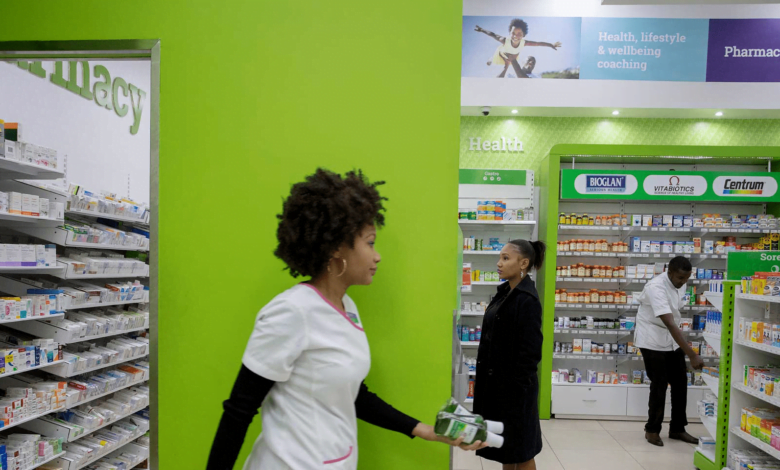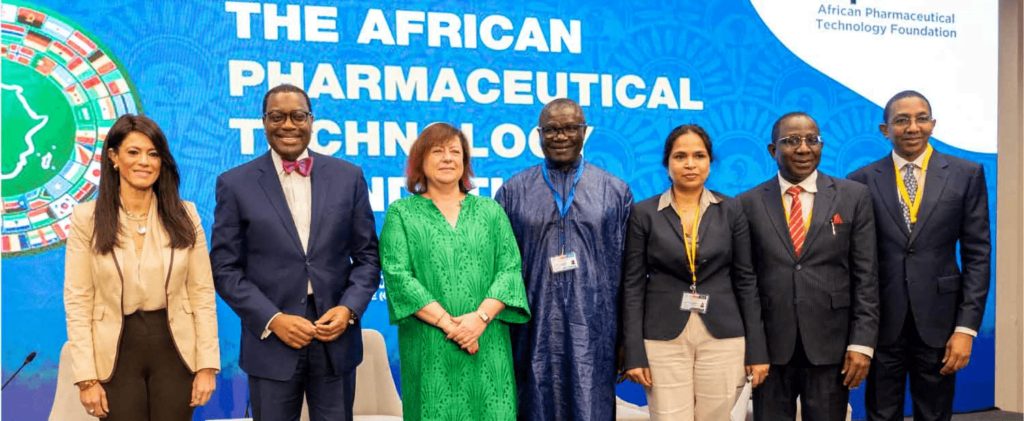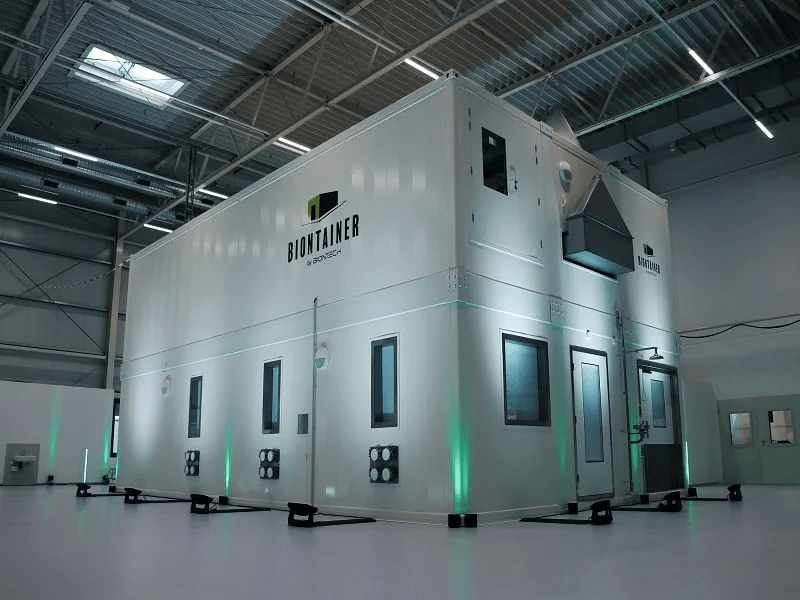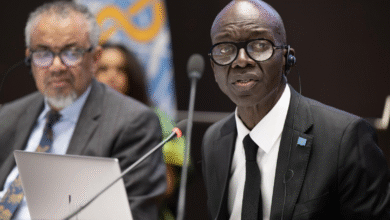Pharmaceutical industry : public and private initiatives that are changing the game
With strategic partnerships, increasing investments, and renewed political will, Africa is positioning itself as a major player in pharmaceutical production and innovation, marking a crucial step in the continent's quest for sustainable health and medical self-sufficiency.

By Bilkyss Mentari
Africa’s progress towards building a resilient and self-sufficient pharmaceutical industry has reached a significant milestone with the signing, last December 19th, of a headquarters agreement between the African Pharmaceutical Technology Foundation and the Rwandan government, the host country, thereby paving the way for the operational implementation of the Foundation. A crucial step towards achieving the continent’s pharmaceutical autonomy.
Approved by the Board of Directors of the African Development Bank Group in June 2022, the African Pharmaceutical Technology Foundation represents a collective effort to equip Africa with a robust pharmaceutical infrastructure. Its work is supported by global technical and financial assistance, making it a central player in the African pharmaceutical sector.
The Foundation has also strengthened its cooperation by signing a memorandum of understanding with the European Investment Bank, thus underscoring the importance of partnerships in achieving this common goal.
The African Development Bank is committed to investing up to $3 billion over the next decade

The key role of the Rwandan government in anchoring the Foundation and granting it international agency status underscores the importance of political commitment to this endeavor. During the signing ceremony of the host country agreement in Kigali, Rwandan Minister of Foreign Affairs and International Cooperation, Dr. Vincent Biruta, emphasized the imperative to bridge the gap in vaccine equity between Africa and developed nations.
« To bridge this gap, we must continue to invest in pharmaceutical production in Africa and other developing countries, » said Biruta. He added, « Technology and knowledge transfer are essential. The new African Pharmaceutical Technology Foundation will help Africa quickly access the latest pharmaceutical advances. »
« Technology is the primary transformation tool that will enable the development of a competitive pharmaceutical industry that Africa will need to ensure the health and well-being of all its inhabitants, » emphasized the President of the African Development Bank Group, Dr. Akinwumi Adesina. He added, « The African Development Bank is committed to investing up to $3 billion over the next decade in the development of the pharmaceutical industry as part of our efforts to industrialize Africa and reduce the continent’s dependence on imports. »
An initiative applauded by global partners, including the World Health Organization and the World Trade Organization. « The World Health Organization is proud to support the African Pharmaceutical Technology Foundation and its mission to increase access to safe and effective medicines for Africa. Health is not a privilege. It is a human right, integrated into development and sustainability, » reminded the Director-General of the World Health Organization, Dr. Tedros Adhanom Ghebreyesu. «
The Foundation has also strengthened its cooperation by signing a memorandum of understanding with the European Investment Bank, underscoring the importance of partnerships in achieving this common goal. This partnership aims to mobilize new financing to overcome market obstacles and encourage investments in pharmaceutical production on the continent.
The work of the Foundation, which benefits from significant global and African technical and financial support, will be central to the African pharmaceutical sector. It is the first of its kind to foster collaboration between the public and private sectors in Africa, North America, Europe, and the rest of the developing world.

In addition to the efforts of states and donors, the African private sector also contributes to this commitment to the pharmaceutical autonomy of the continent. For example, pharmaceutical factory constructions are multiplying. The Dangote Group, led by Nigerian businessman Aliko Dangote, announced the construction of a pharmaceutical factory in Lagos, Nigeria. This factory, expected to be one of the largest in Africa, will produce a range of generic drugs to meet the needs of the local and regional markets.
Ethiopia recently inaugurated a biopharmaceutical manufacturing plant in Addis Ababa. This plant, built in partnership with a German company, aims to produce essential biological drugs for the treatment of diseases such as cancer and diabetes.
A new pharmaceutical factory was inaugurated in Kampala, Uganda, aiming to strengthen the national production capacity of essential medicines. This factory is expected to contribute to reducing the country’s dependence on pharmaceutical imports and improving access to medicines for the local population.
A Swiss pharmaceutical factory, Siegfried PharmaChemikalien, recently announced its intention to open a new generic drug production plant in Mindanao, Nigeria. This factory is expected to increase the availability of essential drugs in the Nigerian market.
South Africa has launched the construction of a new biopharmaceutical research and development center in the Gauteng province. This center, funded by the South African government, aims to stimulate innovation in the pharmaceutical sector and enhance the competitiveness of the South African industry in the global market.
Not to mention the vaccine production factory developed by BioNtech and established in Rwanda.
Only 3% of global pharmaceutical production… Yet, 25% of the world’s patients, across all diseases, are African
These examples illustrate the growing trend of investing in the pharmaceutical sector in Africa, an industry in full swing but with major challenges to overcome. « Africa is home to 17.2% of the world’s population in 2020, but only 3% of global pharmaceutical production (375 manufacturers in 37 African countries, compared to 5,000 in China, for example), » notes the Morgan Philips firm in a report on the pharmaceutical industry in Africa. Yet, 25% of the world’s patients, across all diseases, are African. The pharmaceutical sector is thus a major issue in which the continent must invest. Access to affordable and quality medicines and, above all, the establishment of appropriate public policies and public-private partnerships are essential factors for unlocking the growth potential of the sector in Africa.
If Ebola and the COVID-19 pandemic have contributed to awareness, revealing « the insufficient capacity of Africa to manufacture and supply essential medicines and personal protective equipment (PPE) necessary to stem the pandemic, » only Egypt, South Africa, Tunisia, and Morocco produce drugs and cover between 70% and 80% of their needs, while over 80% of pharmaceutical and medical products are imported to the continent, mostly from China or India, making the development and implementation of local production difficult.
To reverse this trend, it is necessary to « improve access, quality, availability, and financial accessibility of pharmaceutical products » and to « increase economic benefits through sustainability, competitiveness, and autonomy of the industry, » summarizes the firm. Before emphasizing the urgency, namely the lack of « affordable financing » and « modern technologies, » which do not allow the expansion of sector companies.
In this regard, initiatives that serve as catalysts for actors, funding, and projects, such as the African Pharmaceutical Technology Foundation, are more than necessary.







